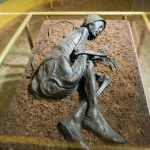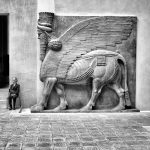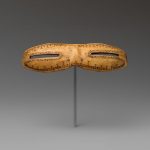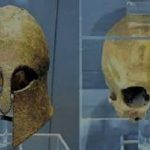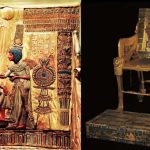Partial dentures, consisting of a pair of teeth set in a gold mount, Etruscan, 600 BC.
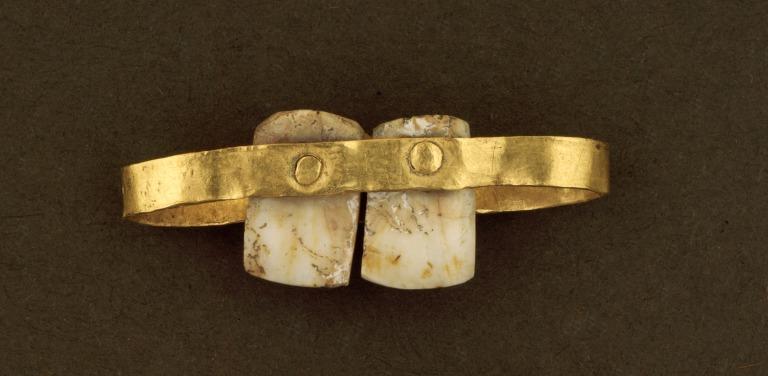
Partial dentures from the Etruscan civilization, dating to around 600 BC, represent some of the earliest known examples of dental prosthetics in Europe.
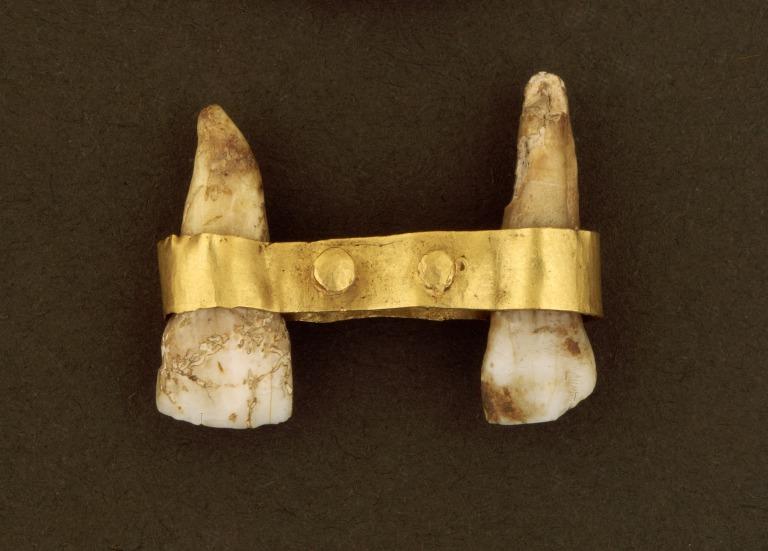
Consisting of a pair of teeth set into a finely crafted gold mount, these dentures reveal the remarkable skill and innovation of the Etruscans, who inhabited the region of Etruria in present-day Umbria and Tuscany, Italy.

Long before the rise of Rome, the Etruscans were renowned for their sophisticated culture, excelling in art, architecture, engineering, and urban planning.
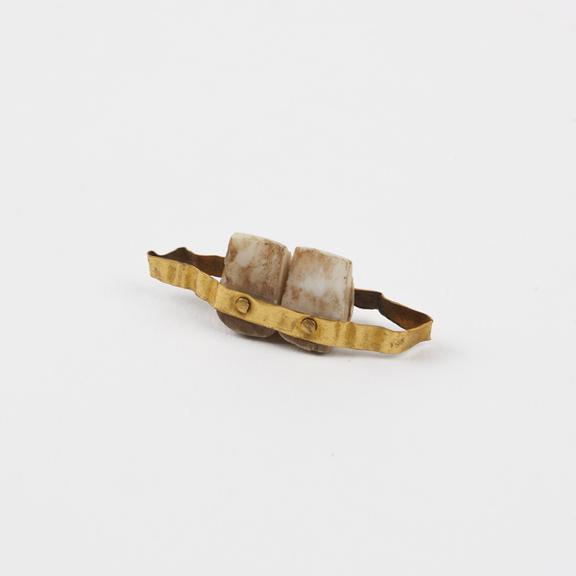
Their achievements also extended to the field of dentistry, where they pioneered techniques for replacing lost teeth with gold wires and mounts, a practice that would influence later dental traditions.
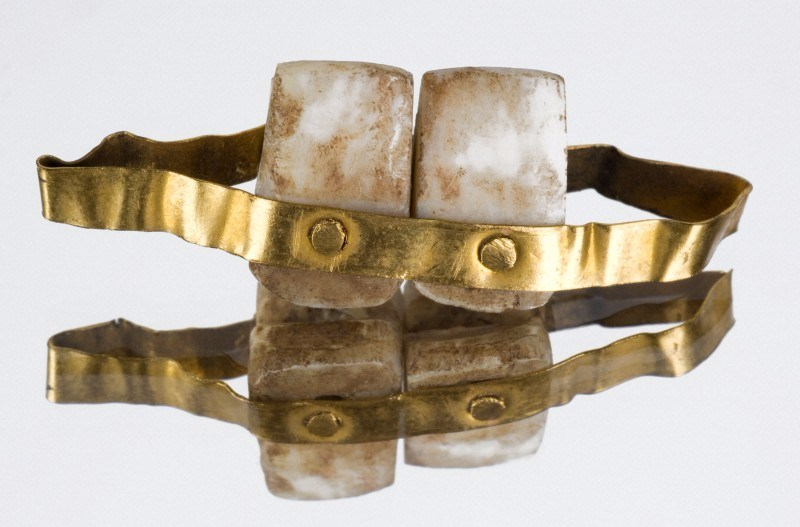
These artifacts highlight not only the advanced craftsmanship of the Etruscans but also their concern for health, appearance, and social identity, making them a significant milestone in the history of medicine and technology.

